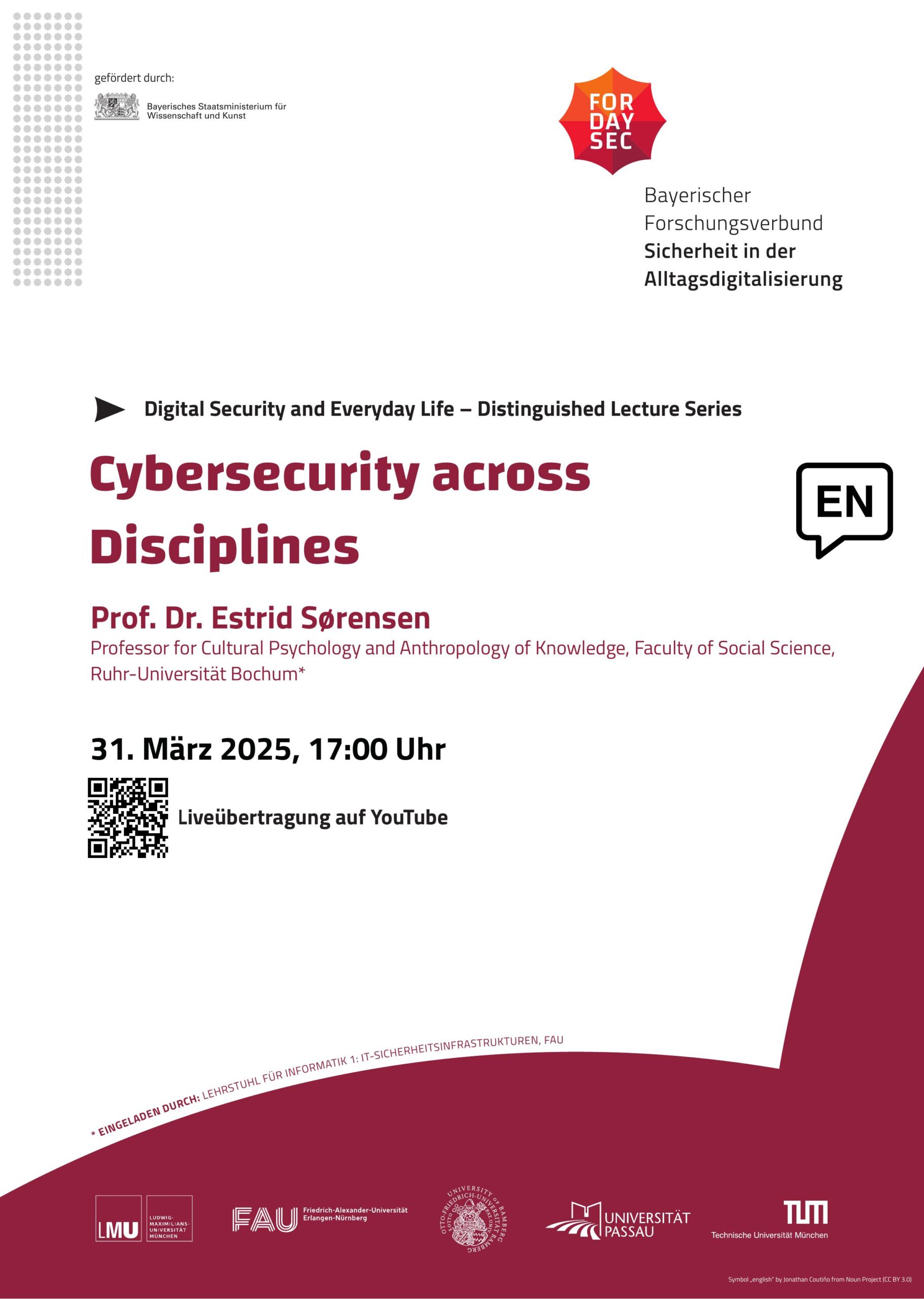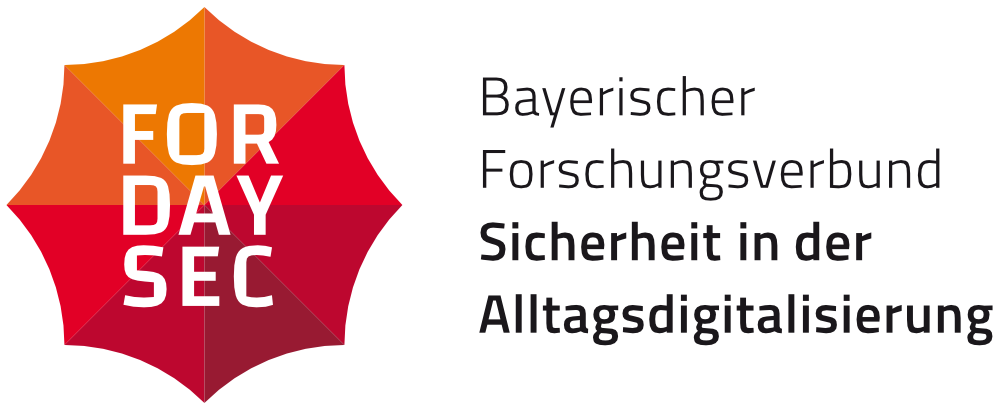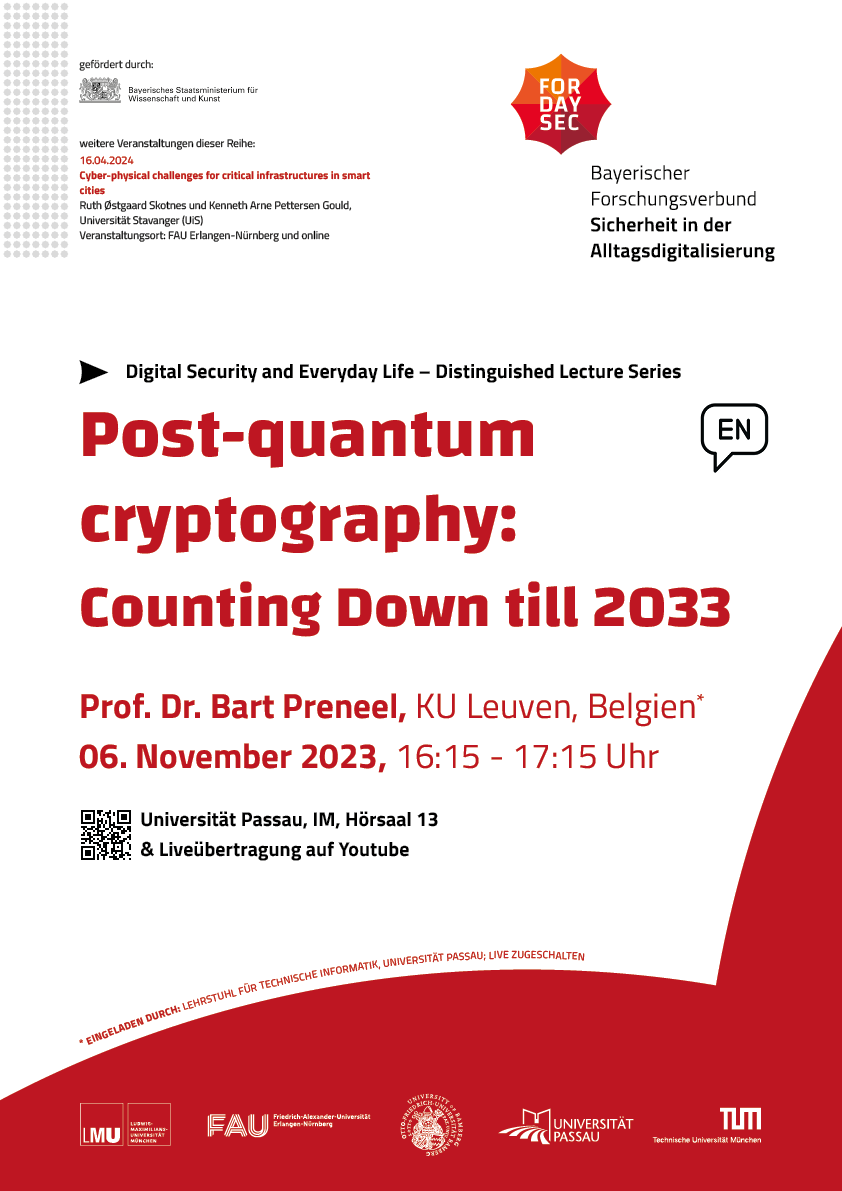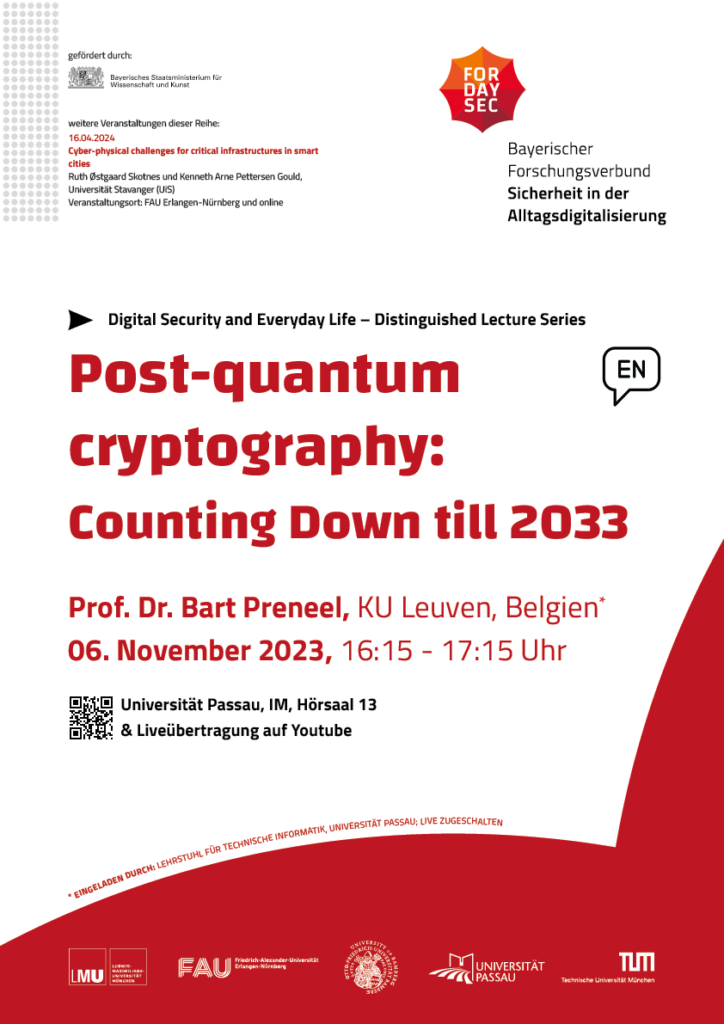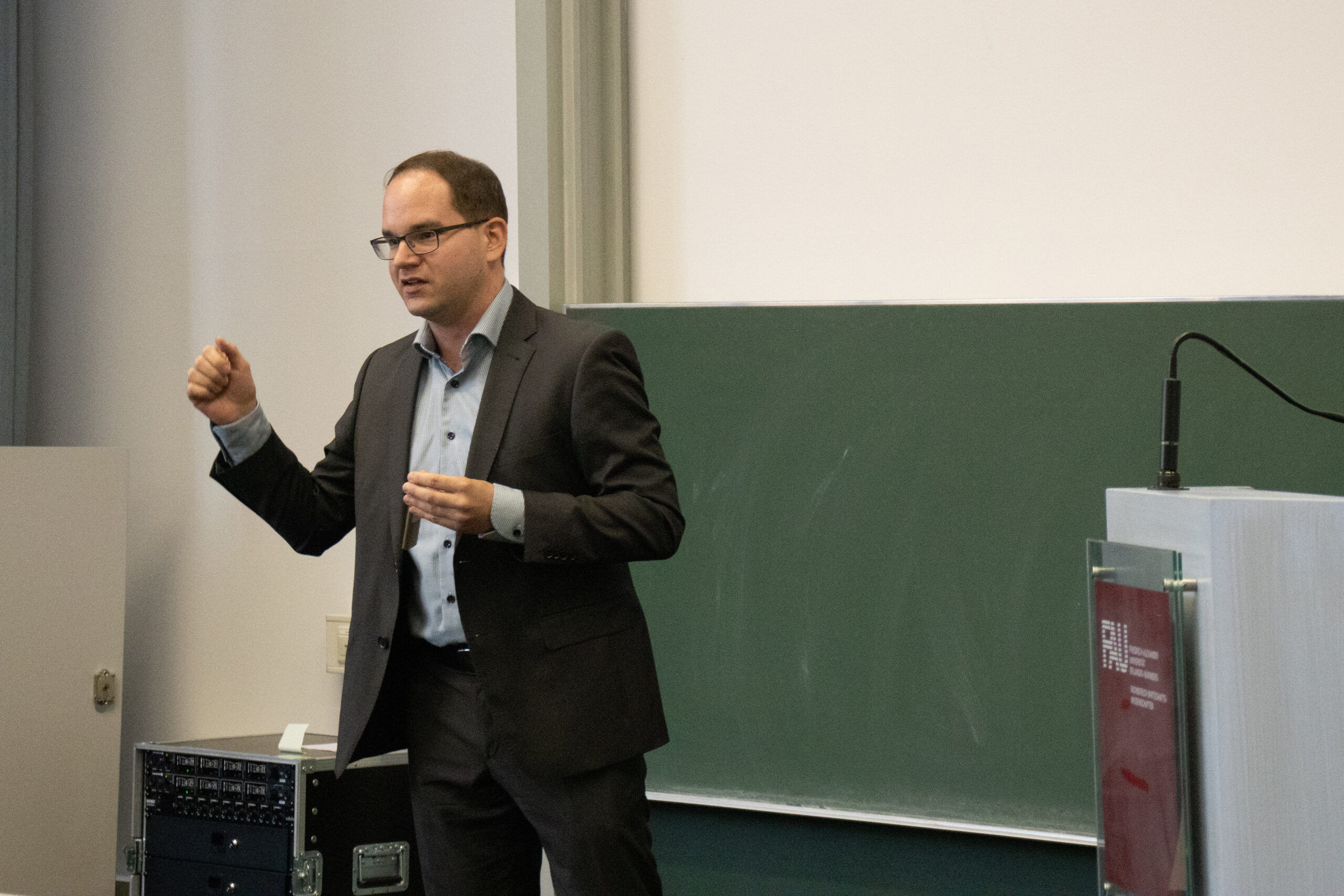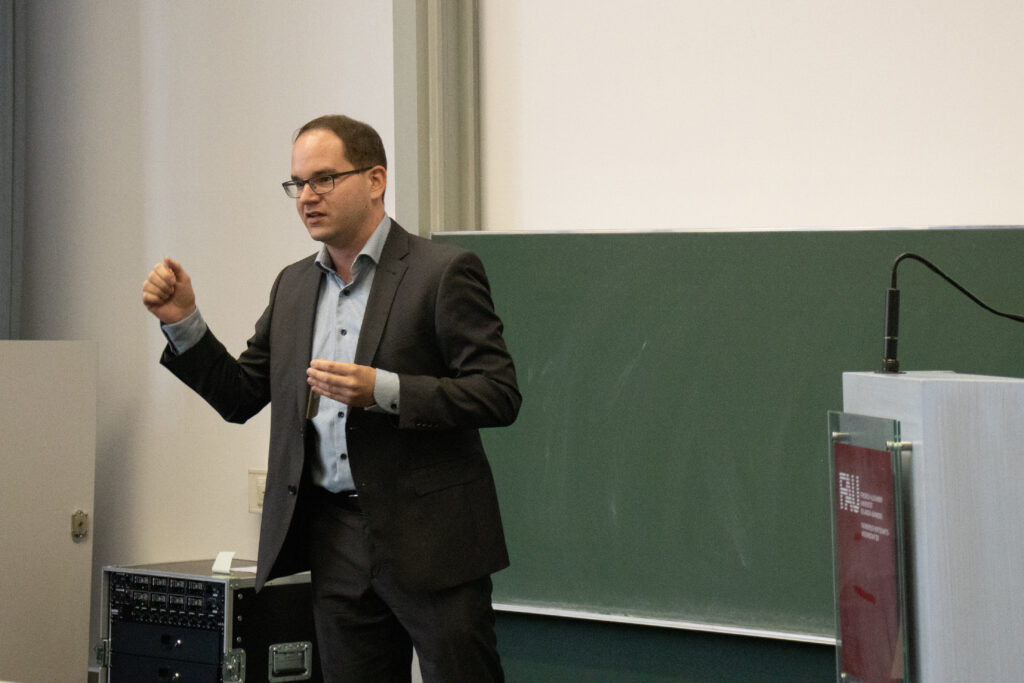Cybersecurity across disciplines
31.03.2025
Prof. Dr. Estrid Sørensen (Ruhr University Bochum) will give the lecture “Cybersecurity across Disciplines” as part of the Distinguished Lecture Series: Security in Everyday Digitization by the Bavarian Research Association ForDaySec.
Description
Scientific data centers and digital infrastructures are essential components of modern knowledge production. But how do data practices shape research, and what impact do they have on planetary resources such as energy and minerals? What social and organizational mechanisms contribute to making the environmental effects of these scientific infrastructures largely invisible?
These questions are at the heart of the lecture by Prof. Dr. Estrid Sørensen (Ruhr University Bochum), who will speak on March 31, 2025, at 5:00 PM as part of the Distinguished Lecture Series: Security in Everyday Digitization by the Bavarian Research Association ForDaySec.
The lecture will be held in English and streamed live exclusively on the ForDaySec YouTube channel.
- Data Infrastructures and Their Impact – Insights into Cybersecurity and Knowledge Production
- How do data centers and data practices influence science and our planet?
- Expert Prof. Dr. Estrid Sørensen explores the interactions between cybersecurity, data infrastructures, and global resources
About the Speaker
Prof. Dr. Estrid Sørensen (Ruhr University Bochum) explores the interactions between materiality, knowledge, and social life. Inspired by Science & Technology Studies (STS), her research includes micro-analytical ethnographic studies on knowledge production and socio-material practices.
Currently, she focuses on data practices, cybersecurity, and scientific data centers, particularly their impact on planetary resources such as energy and minerals.
